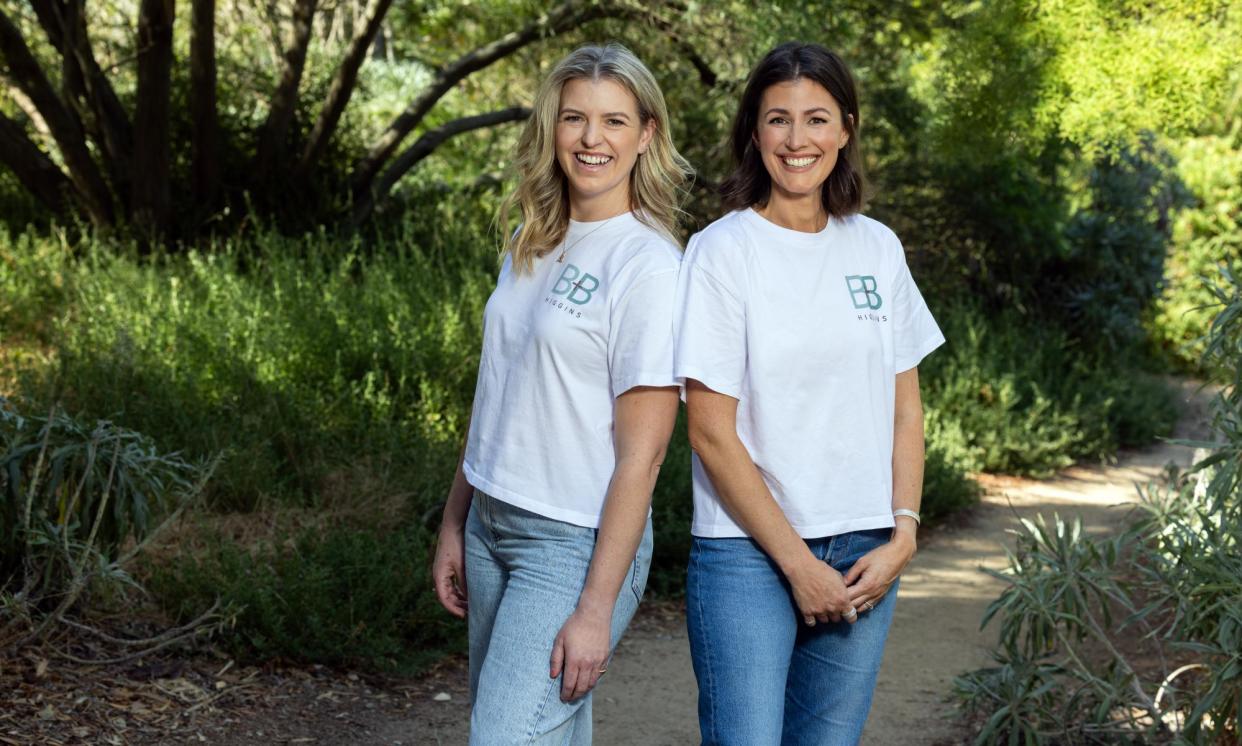Double or nothing: Australia’s first ‘job-sharing’ political candidates raise constitutional questions

Melbourne women Lucy Bradlow and Bronwen Bock have announced a plan to run for federal parliament as independent “job-sharing candidates”.
Bradlow, a political communications expert, and Bock, an investment banker, say they will attempt to nominate jointly – as a single candidate on the ballot paper – for the Melbourne seat of Higgins. If elected, they would split official duties, travel to Canberra on alternate weeks and make joint decisions about key issues.
“There’s been lots of questions, people want to understand it,” Bock said.
“People often ask about the legality of it”.
The job-share concept, increasingly common in the corporate world, has not been attempted before by prospective political candidates in Australia.
A first hurdle would appear to be the Australian Electoral Commission’s nomination form, which only allows enough space for a single candidate standing for election. Thereafter it would probably be up to the high court to decide whether having joint candidates on the ballot is constitutional.
In Bradlow and Bock’s corner is Kim Rubenstein, a constitutional law and citizenship expert, who has long-argued the federal parliament should allow for job-sharing, which she says would ensure politics is “more representative”.
Rubenstein said it would be “ideal” for the government to amend the electoral act to clearly allow two candidates to nominate.
“But if the space isn’t changed and there hasn’t been a positive affirmation, we’d be putting to the electoral commission they’d be able to accept the nomination ... in line with the electoral act.
“If they don’t do that, in my view there’s an argument to say that to deny it would be offending the sex discrimination act.”
Rubenstein said she believed allowing for the election of job-sharing candidates was “entirely consistent” with the constitution.
Others have raised potential legal and constitutional barriers. Anne Twomey, a professor of constitutional law at the University of Sydney, said she was “very doubtful” it would be constitutionally valid for two or more people to job-share the office of a member of parliament.
“This is because the constitution treats a member of parliament as an individual person, who is sworn in and has a right to vote, not as an office that can be shared,” Twomey said.
Twomey said each would need to be sworn in as an MP, and that each would be fully entitled to vote, potentially “giving their electorate double representation”.
“If one is serious about allowing job-sharing of the office of a member of parliament, then it is a matter that should be put to the people in a referendum, with the constitution being properly amended to accommodate it,” Twomey said.
Bradlow and Bock say the feedback in Higgins is that voters are more likely disaffected with the major political parties than at the idea that two people might job-share the role of MP.
“People in the conversations we’re having, they’re open-minded and they see the benefits of what we’re bringing,” Bradlow said.
“There’s no place in politics [at the moment] for anyone who can’t fully commit themselves to the role or has the support systems in place. That limits who can take on the role.”
Related: ‘She divorced me’: how to make job shares work – and why they can fail
Bradlow said she has known Bock for about 30 years and “always thought Bronwen would be an amazing politician”. Bock, a mother of three children, said she had been interested in running for parliament, but couldn’t take on the sort of workload expected from an MP.
“Without doing it as a job share, I wouldn’t be willing to do this on my own,” Bock said. “[Job-sharing] opened up the possibility for me. It opens up parliament to a whole crop of people who are currently excluded from the system.”
They both insist the campaign is no stunt: they are “100%” campaigning to win the seat on a platform that focuses on climate action, government integrity and addressing cost-of-living pressures. They have had “informal conversations” with Climate 200, the group that backed teal candidates at the last federal election.
Higgins, historically a blue ribbon Liberal seat, was won by Labor for the first time ever in 2022. There is also a strong and growing Greens vote in the electorate.
“We definitely agree this isn’t your average seat,” Bradlow said.
“It’s also not your average campaign. Speaking to people in Higgins for the past nine months, we know they’re dissatisfied with both major parties.”
Both Bradlow and Bock insist they are aligned in their thinking. But how would they solve disagreements?
“Where we disagree we’ll discuss and debate and come to an agreement,” Bock said.
“We will have a process for having discussions in an organised way. We are two people who bring two sets of skills working through issues.
“This has been done in the private sector for decades and it works really well”.


